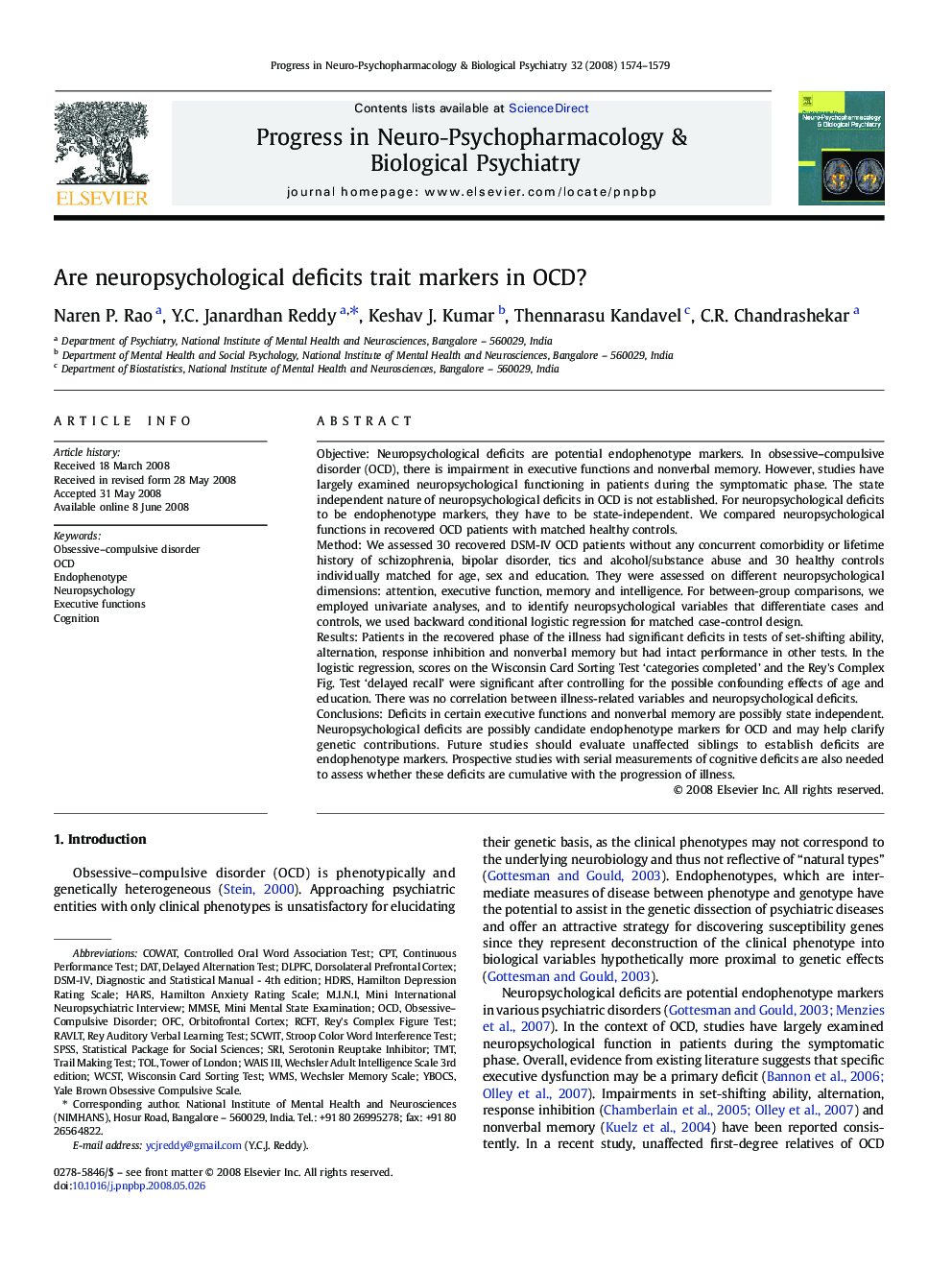| کد مقاله | کد نشریه | سال انتشار | مقاله انگلیسی | نسخه تمام متن |
|---|---|---|---|---|
| 2565632 | 1128063 | 2008 | 6 صفحه PDF | دانلود رایگان |

ObjectiveNeuropsychological deficits are potential endophenotype markers. In obsessive–compulsive disorder (OCD), there is impairment in executive functions and nonverbal memory. However, studies have largely examined neuropsychological functioning in patients during the symptomatic phase. The state independent nature of neuropsychological deficits in OCD is not established. For neuropsychological deficits to be endophenotype markers, they have to be state-independent. We compared neuropsychological functions in recovered OCD patients with matched healthy controls.MethodWe assessed 30 recovered DSM-IV OCD patients without any concurrent comorbidity or lifetime history of schizophrenia, bipolar disorder, tics and alcohol/substance abuse and 30 healthy controls individually matched for age, sex and education. They were assessed on different neuropsychological dimensions: attention, executive function, memory and intelligence. For between-group comparisons, we employed univariate analyses, and to identify neuropsychological variables that differentiate cases and controls, we used backward conditional logistic regression for matched case-control design.ResultsPatients in the recovered phase of the illness had significant deficits in tests of set-shifting ability, alternation, response inhibition and nonverbal memory but had intact performance in other tests. In the logistic regression, scores on the Wisconsin Card Sorting Test ‘categories completed’ and the Rey's Complex Fig. Test ‘delayed recall’ were significant after controlling for the possible confounding effects of age and education. There was no correlation between illness-related variables and neuropsychological deficits.ConclusionsDeficits in certain executive functions and nonverbal memory are possibly state independent. Neuropsychological deficits are possibly candidate endophenotype markers for OCD and may help clarify genetic contributions. Future studies should evaluate unaffected siblings to establish deficits are endophenotype markers. Prospective studies with serial measurements of cognitive deficits are also needed to assess whether these deficits are cumulative with the progression of illness.
Journal: Progress in Neuro-Psychopharmacology and Biological Psychiatry - Volume 32, Issue 6, 1 August 2008, Pages 1574–1579